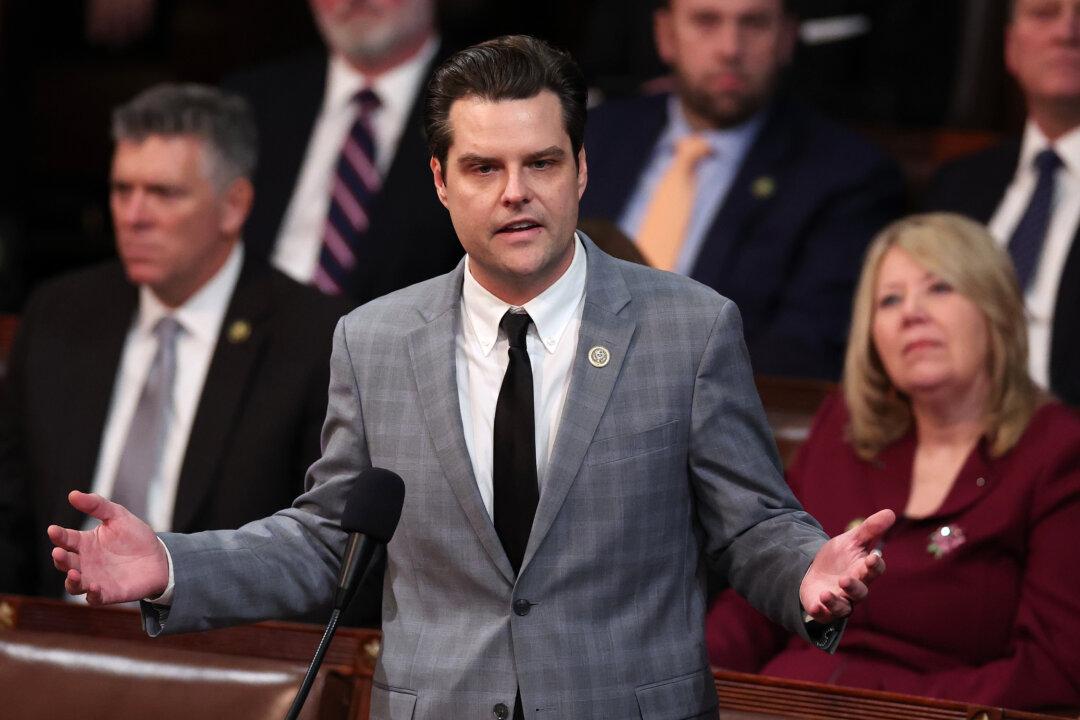Rep. Matt Gaetz (R-Fla.) is introducing a resolution to censure U.S. District Court Judge Tanya Chutkan and open an investigation into her “for showing open bias and partisanship in her official duties on the bench.”
Judge Chutkan is overseeing a case against former President Donald Trump, brought by the Department of Justice (DOJ) for conspiracy in his challenge of the 2020 election results. She has already overseen many other cases related to the Jan. 6, 2021, Capitol protest, which is being investigated by special counsel Jack Smith. About 1,000 people have already been sentenced for crimes related to the day’s events, and Judge Chutkan has been known to hand down harsh prison sentences.





